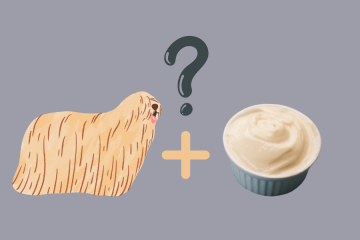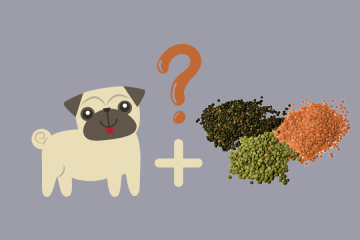Key Takeaways
- Sesame seeds can be a tasty and wholesome treat for your furry friend ✅
- However, their phytic acid content may hinder the absorption of vital minerals like iron, zinc, and calcium ⚠️
- Steer clear of feeding your dog human dishes like sesame seed chicken ❌
- To safely serve sesame seeds to your pup, roast them and sprinkle small amounts over their regular food. This way, you can provide a nutritious boost without overdoing it ✅
Sesame seeds are a good source of healthy fatty acids, protein, B vitamins, minerals, fiber, antioxidants, and other beneficial plant compounds. People enjoy them on their bagels and hamburger buns. What can dogs eat sesame seeds for?
Health Benefits of Sesame Seeds for Dogs
Feeding your pup those nutrient-packed sesame seeds might be more beneficial than you think! Here’s a glimpse into the health advantages your canine companion could enjoy:
- Get ready for a glossy and healthy coat! Sesame seeds are packed with zinc, a vital ingredient for maintaining skin and fur health.
- Worried about your dog’s blood sugar levels? Sesame seeds have been known to help regulate glucose in diabetic humans, so it’s likely that our furry friends could benefit too!
- Keep your dog’s digestive system in tip-top shape! The high fiber content in sesame seeds works wonders for maintaining gut health and easing constipation.
- Strengthen those bones! The calcium and magnesium found in sesame seeds promote healthy bones and teeth, ensuring your pup stays strong.
- Combat inflammation like a champ! Antioxidants in sesame seeds protect cells from damage caused by inflammation, keeping your dog healthy and happy.

Give your four-legged buddy the gift of great health with sesame seeds – a small but mighty superfood! If your dog is already enjoying a well-balanced diet, adding sesame seeds won’t magically make them healthier. But if they’re a picky eater or you’re seeking variety for their meals, sesame seeds or oil could provide extra nutrients and flavors.
When Can Sesame Seeds Be Bad for Dogs?
There’s a slight chance they could cause an allergic reaction, and dogs with stomach issues or pancreatitis should steer clear of seeds and nuts altogether. Overindulging in sesame seeds could also be harmful due to their phytic acid content, which can hinder the absorption of essential nutrients like calcium, zinc, and iron.
Fact
Raw sesame seeds contain considerably more antinutrients than fermented seeds. Cooking sesame seeds also makes them less capable of blocking nutrient absorption.
Can Dogs Eat Sesame Seeds Raw?
We don’t recommend feeding them raw – they can be tough to digest, leading to an upset belly. So, how can dogs eat sesame seeds? Try roasting a teaspoonful and mixing them into your dog’s meal, or grinding them into a paste to make pup-friendly tahini!
Can Dogs Eat Sesame Oil?
Sesame oil is a good source of healthy fats, and it’s also an effective antioxidant. Just like with the seeds themselves, we recommend only giving your dog a small amount of sesame oil at a time. You can mix it into their wet food or coat a crunchy snack with a bit of oil.

Can Dogs Eat Tahini?
Tahini is a paste made from ground sesame seeds. It’s commonly used in Middle Eastern cuisine and has a somewhat nutty flavor. Since sesame seeds are safe for dogs, tahini is too. However, it’s high in fat and calories, so it should only be fed to dogs in small amounts. Half a teaspoon per week won’t harm your pup.
Are Sesame Sticks Safe for Dogs to Eat?
If pure sesame is fine, can dogs eat sesame sticks? Sadly, that’s a no-go. These tasty treats often come with a side of unhealthy additives and preservatives, which could spell trouble for your furry friend.
Can You Give Your Dog Sesame Seed Chicken?
While both sesame and chicken can be beneficial for your pup, the full dish isn’t a wise choice. Most recipes feature sugary and salty sauces, which aren’t the best for your dog’s health. Plus, they often use less-than-ideal oils like soybean or peanut oil. So, when it comes to restaurant or takeout sesame chicken, let your pup sit this one out.

Are Sesame Seed Crackers Off Limits, Too?
Just like with sesame sticks, most store-bought crackers are unhealthy for dogs due to salt and other additives. Try making this crunchy snack at home with whole wheat flour and olive oil.
Add Sesame Seeds to Your Pup’s Diet Wisely
So, can dogs eat sesame seeds? Yes, but don’t give them any processed human foods like sesame sticks. Instead, try roasting some seeds for extra flavor in their dog food, and you’ll be giving them a nutritious snack.
Now, if all that sesame talk made you think of the Sesame Street, here’s a vid!
Frequently Asked Questions
What Seeds Are Toxic to Dogs?
Poppy seeds are highly poisonous to dogs. In addition, many fruit seeds – including apple, cherry, and plum seeds – are harmful to dogs because they contain cyanide.
Can Dogs Have Sesame Seeds and Flax Seeds?
Absolutely! Feel free to mix either kind of seed into your dog’s meals, whether they’re munching on kibble or enjoying wet food. Just start small and slowly up the quantity, allowing your four-legged pal to acclimate to the tasty new treat.
Can Dogs Have Sesame Seed Bagels?
As for bagels, it’s best to keep them off your pup’s plate. Made with unhealthy refined flours and packed with salt, bagels aren’t the ideal choice for your dog. So, while sesame seeds get the green light, bagels should stay on the „do not eat” list.












